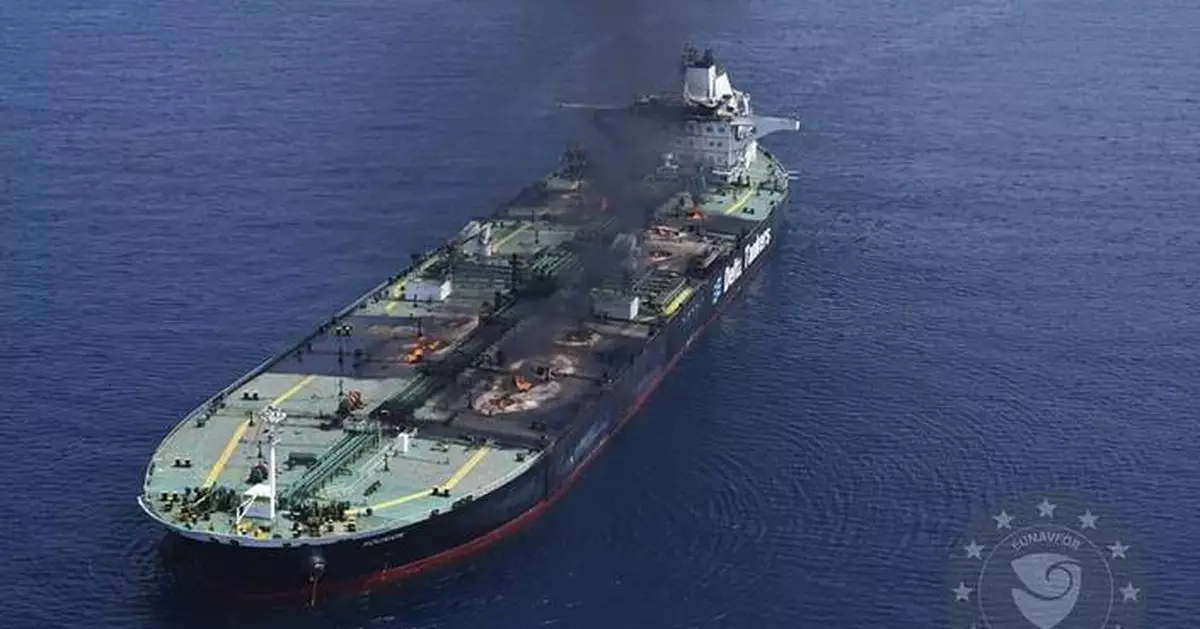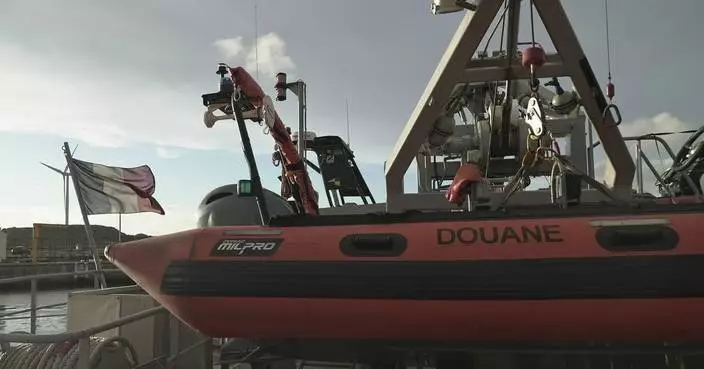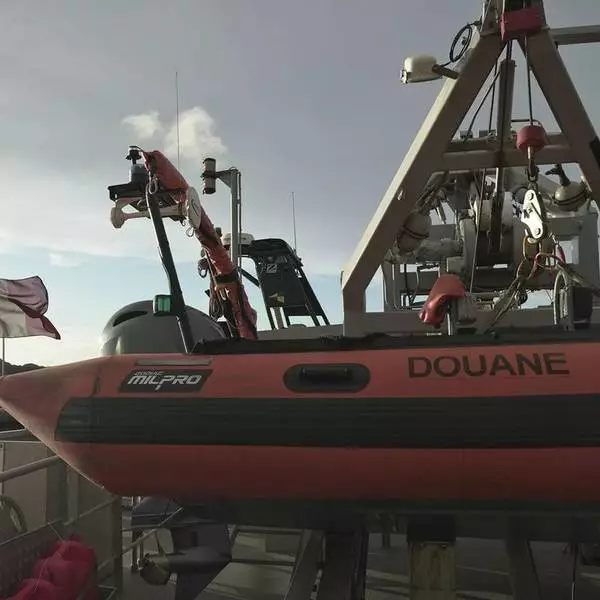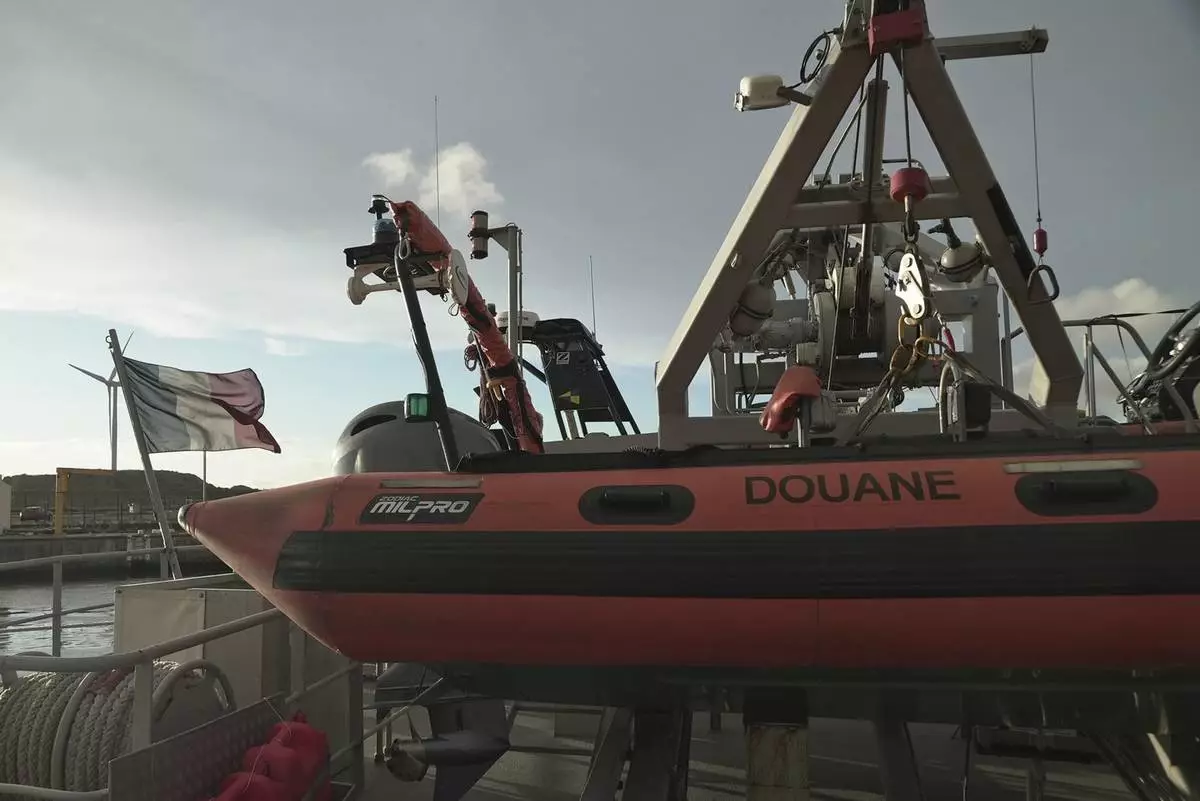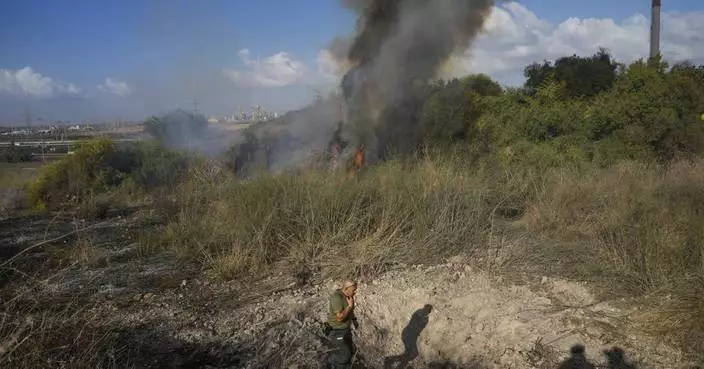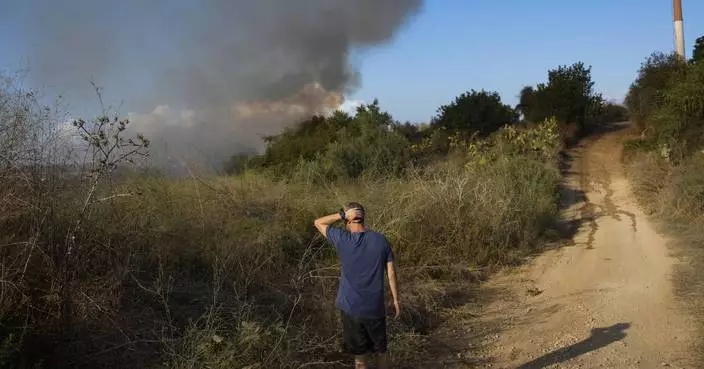DUBAI, United Arab Emirates (AP) — An attack by Yemen's Houthi rebels targeted a Panama-flagged oil tanker in the Red Sea on Monday, authorities said, as a nearby Saudi-flagged tanker ship also allegedly came under fire from the group.
The attacks are believed to be the latest in the Iranian-backed rebels’ campaign that has disrupted the $1 trillion in goods that pass through the Red Sea each year over the Israel-Hamas war in the Gaza Strip and has halted some aid shipments to conflict-ravaged Sudan and Yemen.
The new attacks on oil tankers also come amid efforts to salvage the still-burning Sounion oil tanker earlier hit by the Houthis, seeking to head off the potential ecological disaster posed by its cargo of 1 million barrels of crude oil.
In Monday's first assault, two ballistic missiles hit the oil tanker Blue Lagoon I and a third exploded near the ship, the multination Joint Maritime Information Center overseen by the U.S. Navy said.
“All crew on board are safe (no injury reported),” the center said. "The vessel sustained minimal damage but does not require assistance."
Houthi military spokesman Brig. Gen. Yahya Saree claimed responsibility for the attack on the Blue Lagoon I late Monday night.
The Blue Lagoon I is traveling south through the Red Sea to an unlisted destination. The vessel was coming from Russia's port of Ust-Luga on the Baltic Sea and had been broadcasting that it had Russian-origin cargo on board.
In recent months, the Blue Lagoon I traveled to India, which gets more than 40% of its oil imports from Russia despite Moscow's ongoing war on Ukraine and the international sanctions it faces over it.
The Greek-based firm operating the ship could not be reached. The Joint Maritime Information Center said it assessed that the ship “was targeted due to other vessels within its company structure making recent port calls in Israel.” Saree also cited that as the reason the Houthis attacked the vessel.
Later on Monday morning, the British military's United Kingdom Maritime Trade Operations center reported a second attack off the Houthi-controlled port city of Hodeida. The private security firm Ambrey said an aerial drone hit a merchant ship, though no damage or injuries were reported. The attack happened only a few kilometers (miles) from where the Blue Lagoon I attack occurred, Ambrey said.
The U.S. military's Central Command, which oversees American operations in the Mideast, identified the second vessel as the Saudi-flagged oil tanker Amjad and blamed the attack on the Houthis. The Amjad carried 2 million barrels of oil, it said.
“These reckless acts of terrorism by the Houthis continue to destabilize regional and global commerce, as well as put the lives of civilian mariners and maritime ecosystems at risk,” Central Command said.
The U.S. military also destroyed two Houthi missile systems in strikes on Monday, the command added.
The Houthi group did not immediately claim responsibility for the attack on the Amjad. However, it can take the rebels hours or even days to acknowledge their assaults.
In the case of the Amjad attack, the Houthis likely did not claim it given a yearslong, de facto cease-fire in which the group has not attacked Saudi Arabia as the kingdom tries to reach a peace deal with the rebels. Saudi Arabia also reached a Chinese-mediated detente with Iran, the Houthis' main benefactor, last year that's still holding.
Saudi Arabia launched a war against the Houthis in March 2015 in support of Yemen's exiled government, which earlier had been thrown out of the capital, Sanaa, by the rebels.
Saudi Arabia similarly did not acknowledge the attack on the Amjad, possibly to lower any pressure on it to respond militarily. Yemen's war has killed more than 150,000 people, including fighters and civilians, and created one of the world’s worst humanitarian disasters, killing tens of thousands more.
The Houthis have targeted more than 80 vessels with missiles and drones since the war in Gaza started in October. They seized one vessel and sank two in the campaign that also killed four sailors. Other missiles and drones have either been intercepted by a United States-led coalition in the Red Sea or failed to reach their targets.
The rebels maintain that they target ships linked to Israel, the U.S. or the U.K. to force an end to Israel’s campaign against Hamas in Gaza. However, many of the ships attacked have little or no connection to the conflict, including some bound for Iran.
Meanwhile on Monday, a salvage effort appeared to be underway to tow away the Sounion oil tanker, which was earlier hit by the Houthis and abandoned by its crew. Jamel Amer, an official with the Houthis, wrote online Saturday that tugboats assigned to pull the Sounion away should arrive Sunday.
However, NASA fire satellites showed a blaze at the site where the Sounion had been abandoned on Monday morning. Later photos published by the European Union's Operation Aspides naval mission in the Red Sea of the Sounion taken on Monday showed no tugboats near the still-burning vessel.
“Private companies are involved in the salvage operation that is about to start,” the operation said. “Upon their request, EUNAVFOR ASPIDES will provide protection to the tugboats, that will deal with the salvage operation and facilitate their efforts to prevent an environmental disaster.”
It added: “Currently, several fires continue to burn on the vessel’s main deck. The vessel remains anchored without drifting, and there are no visible signs of an oil spill.”
The Sounion was carrying about 1 million barrels of oil when the Houthis initially attacked it on Aug. 21 with small arms fire, projectiles and a drone boat. A French destroyer operating as part of Operation Aspides rescued the Sounion’s crew of 25 Filipinos and Russians, as well as four private security personnel, after they abandoned the vessel and took them to nearby Djibouti.
Last week, the Houthis released footage showing they planted explosives on board the Sounion and ignited them in a propaganda video, something the rebels have done before in their campaign.
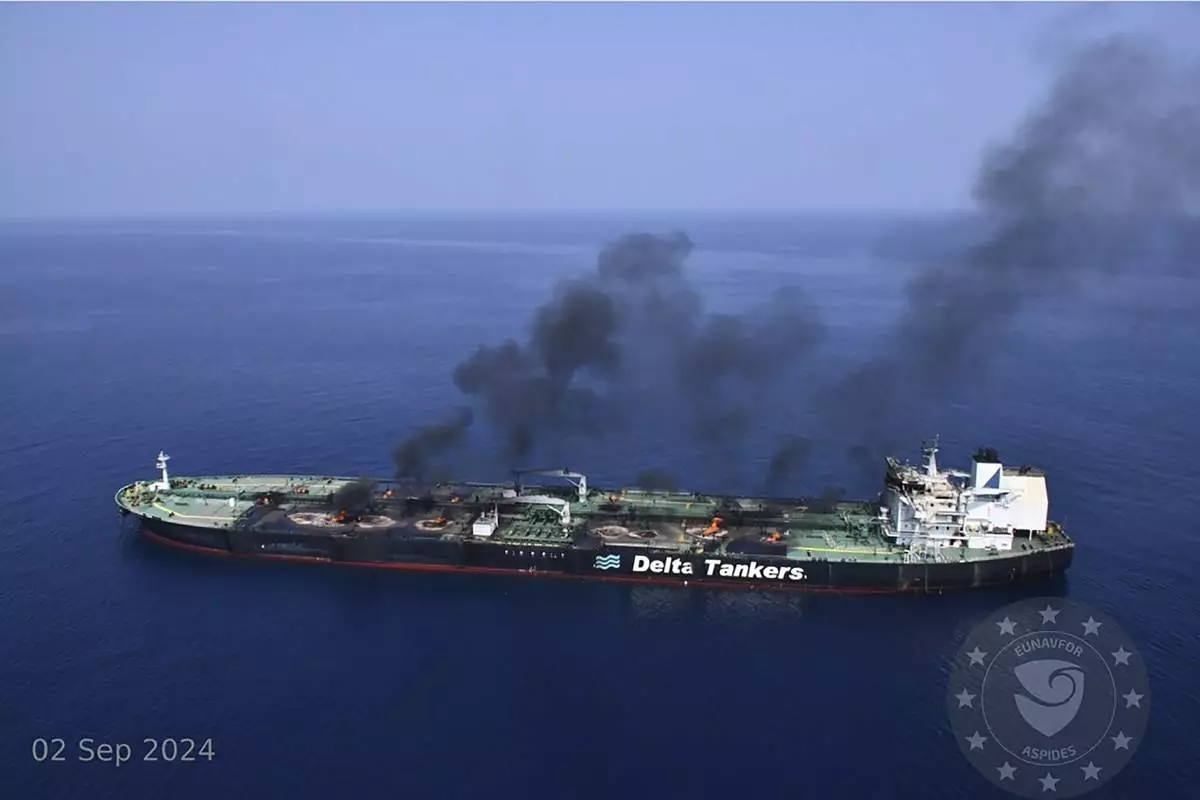
This photo released by the European Union's Operation Aspides naval force shows the Greek-flagged oil tanker Sounion burning in the Red Sea following a series of attacks by Yemen's Houthi rebels on Monday, Sept. 2, 2024. (European Union's Operation Aspides via AP)
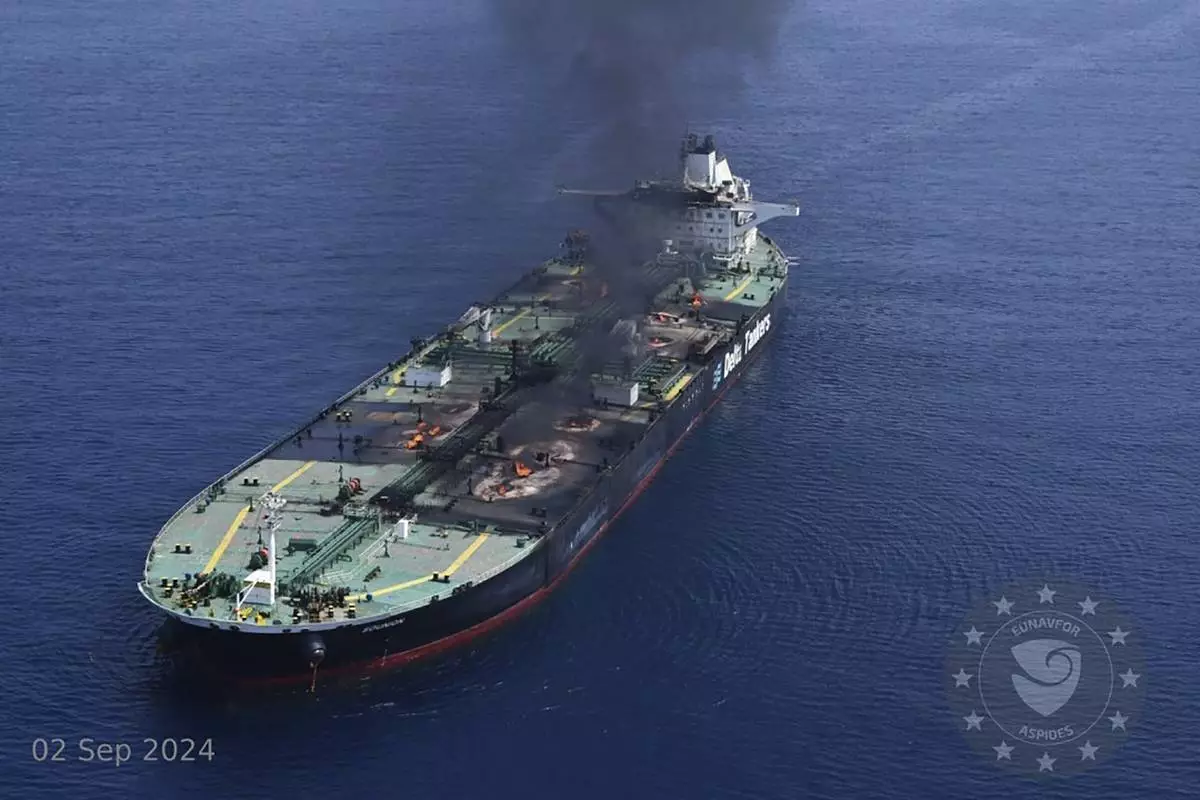
This photo released by the European Union's Operation Aspides naval force shows the Greek-flagged oil tanker Sounion burning in the Red Sea following a series of attacks by Yemen's Houthi rebels on Monday, Sept. 2, 2024. (European Union's Operation Aspides via AP)


